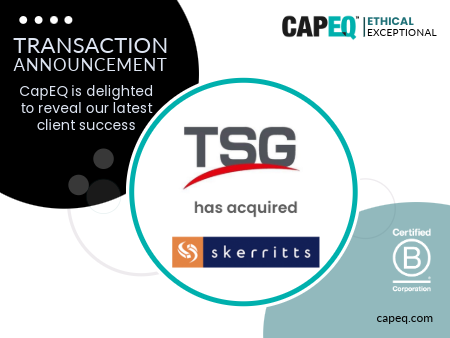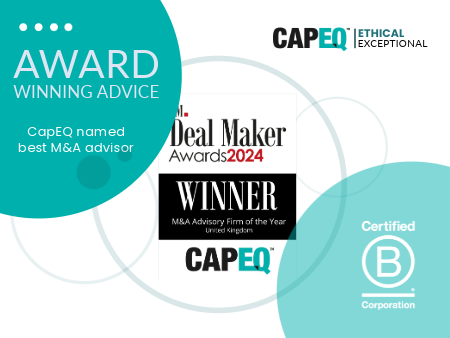CapEQ Asides
Thoughts on buying and selling businesses, from CapEQ

WHAT AM I SELLING?
If you’re thinking of selling your business or some of its assets, you might be wondering what you’re putting on the table. Here’s an overview …
The vast majority of business sales in the UK are share sales. The purchaser buys the shares of a limited company and with these come all its assets and liabilities. However, sometimes a share sale is impossible, as when the business is an LLP or sole trader. The seller may only be offering part of a limited company (eg the equipment, clients and staff, but not the brand name). Occasionally it’s more tax efficient to sell the company’s assets but not the shares.
Assets purchased
Your buyer may acquire hard assets like machinery; operating assets such as inventory; and intellectual property assets (eg customer lists). Buildings and land may not be included in a sale, though your buyer might elect to rent the existing facility from you. Personal assets like cars and boats are unlikely to feature.
In the majority of asset transactions, the sale is structured as debt-free/cash-free: as the seller you get to keep all accrued debts and cash.
Liabilities Assumed/Adjustments
In most cases, the only liabilities the buyer acquires are accounts payable. All other liabilities, known or unknown, stay with you as the seller. For example, you would be required to repay debts, settle all accrued holiday pay, etc. In such a transaction, the Net Debt adjustment clarifies what is considered debt and remains an obligation not acquired by the buyer. If your buyer has to settle any debts, the purchase price should be reduced by these amounts.
Working capital adjustments are used in nearly all transactions to adjust the purchase price for movements in the working capital accounts (usually accounts receivable, inventory and accounts payable) between the letter of intent’s execution and closing the deal. This ensures that the business is sold with an appropriate level of working capital (usually defined as the working capital target).
Get a Guide
If you’re contemplating selling (or buying) a business/its assets, talk to us at CapEQ. We’ll steer you in the right direction – and stick with you every step of the way.
www.capeq.co.uk +44 (0)20 8004 4422





